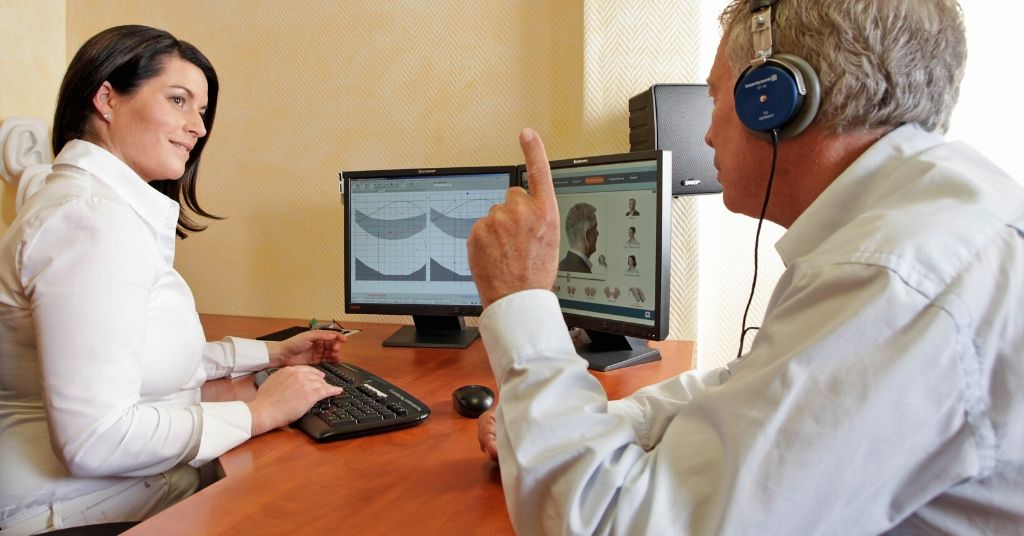
Accessibility and visibility for people with disabilities in Hollywood
November 30, 2020
Disney+ to launch new series with deaf superhero
December 4, 2020Healthcare providers and accessible communication

When it comes to healthcare providers and accessible communication, there’s no consistency. Email or a patient portal should be the standard for all patients, but this isn’t always the case.
For people with hearing difficulties or other communication challenges, the lack of access can be especially frustrating. In this article, we outline some common challenges and potential solutions.
Lack of Access
Several months ago, a medical assistant in my specialist’s office called me on my caption phone with my test results. I had questions she was unable to answer, but she said I couldn’t speak to the doctor. My only recourse was to schedule a telemedicine visit with the nurse practitioner in two weeks. This lack of access to my healthcare provider was beyond frustrating.
If email isn’t allowed, Michelle Nemetz, who has cochlear implants, says she sometimes faxes a note. Her asthma doctor’s office doesn’t have a patient portal.
“One nurse was so helpful with communications and got permission to use email but recently was let go,” (not for this reason) Nemetz says. “Dealing with the new nurse hasn’t been as successful [and is] frustrating.”
Summer Casey (pseudonym for privacy) says she also experienced challenges when she had to bring her mom for eye surgery. The facility insisted there was no way they could text or email Casey – who has a cochlear implant — when her mom was ready. This, despite the fact that they text all of the pre-surgical questionnaires and appointment reminders.
“My mom ended up having to bring her phone into surgery and texting me when she got out, even though she couldn’t even see,” Casey says.
Accessible Communication
Thankfully, all of Casey’s main providers – really just her regular doctor and her ob-gyn – communicate with her via email. Her main doctor uses a patient portal. Her ob-gyn automatically offered his personal email, telling Casey he knew her well enough to know it was fine. The nurse in the office also uses her personal email with Casey.
My kids’ pediatrician gave me his personal email and cell phone. He told me not to hesitate to use them at any time. This access has made me stay with him despite his office moving farther away.
Read more: Maneuvering hospital stays with hearing loss
HIPAA and Email
But some healthcare providers aren’t comfortable sharing personal emails. My specialist’s office has a whole disclaimer on its website about how communications via email are not secure. If you ask me, this is a cop-out. Email can be made secure through encryption or patients can sign a waiver that they understand the lack of security and consent to email.
And some offices refuse to communicate via email, whether they have a professional or personal account. My dermatologist’s office, for example, says they don’t have email. As a deaf nurse practitioner friend says, “I don’t believe for a second that they don’t have email.”
But if healthcare providers can’t make exceptions for patients with hearing loss, what’s our recourse?
Read more: 5 tips for attending a doctor appointment with hearing loss
Patient Portals
Another option is a patient portal. It’s a popular alternative to email that more healthcare providers are adopting these days. As the Mayo Clinic explains, it’s a more secure online tool that allows patients to communicate with their healthcare providers, request prescription refills, review test results and summaries of previous visits (important for those of us with hearing loss!), and schedule appointments or request appointment reminders.
While researching for this article, I went to my specialist’s website and discovered they’re part of a patient portal. I called the office to ask how to connect. They said they would send me an invite, which I received after some hassle. Why, in the months of my dealings with this office, did no one think to mention this to me?
Interestingly, several days later after messaging the office through the portal, they called me. I was told they don’t use the portal for messages as it’s not reliable. So it was all for naught. I did pass on the feedback that they should switch to a portal that works so they’re more accessible to their patients.
A 2013 article in Consumer Reports lists five reasons why patient portals can lead to better health. They put your health in your hands, which results in more favorable outcomes and better care. They’re also convenient, allow for faster feedback, more rewarding visits, and ensure accurate records. So why aren’t more healthcare providers utilizing today’s technology for better access?
Patients Want More Access
Deaf patients aren’t the only ones asking for more access.
A 2015 Nielsen survey released by the Council of Accountable Physician Practices and the Bipartisan Policy Center found that the majority of medical providers in the U.S. still don’t use email, text, or other tools to communicate with their patients.
Robert Pearl, chairman of the Council of Accountable Physician Practices, is quoted in the Washington Post article as saying, “All the functionality that we live our lives on isn’t available in health care. You use your phone every day to send a text message or email; you can’t do that to over 90 percent of physicians.”
“All the functionality that we live our lives on isn’t available in health care.”
The Washington Post article mentions two main reasons barriers exist: inertia by physicians and a lack of financial incentives to tackle a complex task. Healthcare providers can’t bill for the time they spend on messages, for example.
A U.S. News article says “the shift towards value-based payment models – in which doctors are paid for the quality of their services – will change the current incentive structure for medical providers.”
But nearly 40 percent of physicians polled said this technology is good for patients – and patients clearly want the services.
Furthermore, implementing patient portals has its benefits. The Health Care Blog reported in 2015 that physicians are understandably concerned about being overwhelmed by emails if they provide an option for secure messaging. But this hasn’t been the case. In fact, when Kaiser instituted OpenNotes, traffic to their portal increased 400 percent, yet the volume of email traffic to doctors stayed the same.
Action to Take
While healthcare providers are obligated to provide reasonable accommodations, the Relay or a captioned phone fall under this category. Many deaf people don’t like to use the phone at all, but that’s irrelevant. If you’ve made sure that your healthcare provider doesn’t have a patient portal, ask if they have an email they can use – even if it’s their personal one. Show them this article.
“Talk to your doctor,” Dr. Chad Ruffin – an ENT who has cochlear implants — says. “If they don’t accommodate you, then leave a review and find another one. A lack of empathy is tied to worse healthcare outcomes.”



